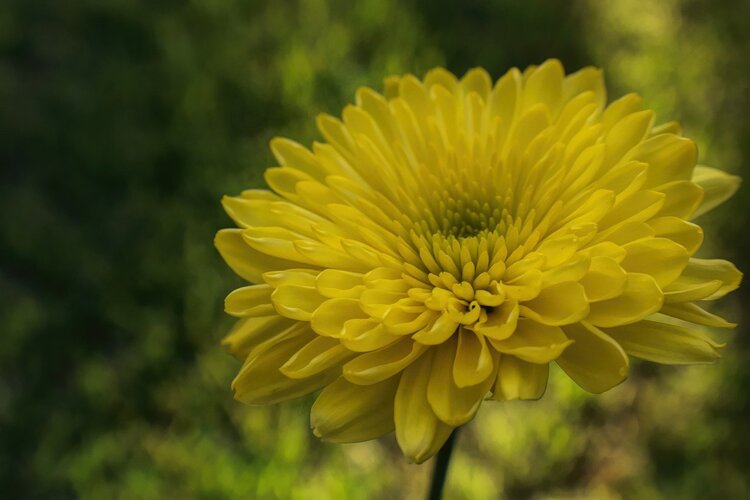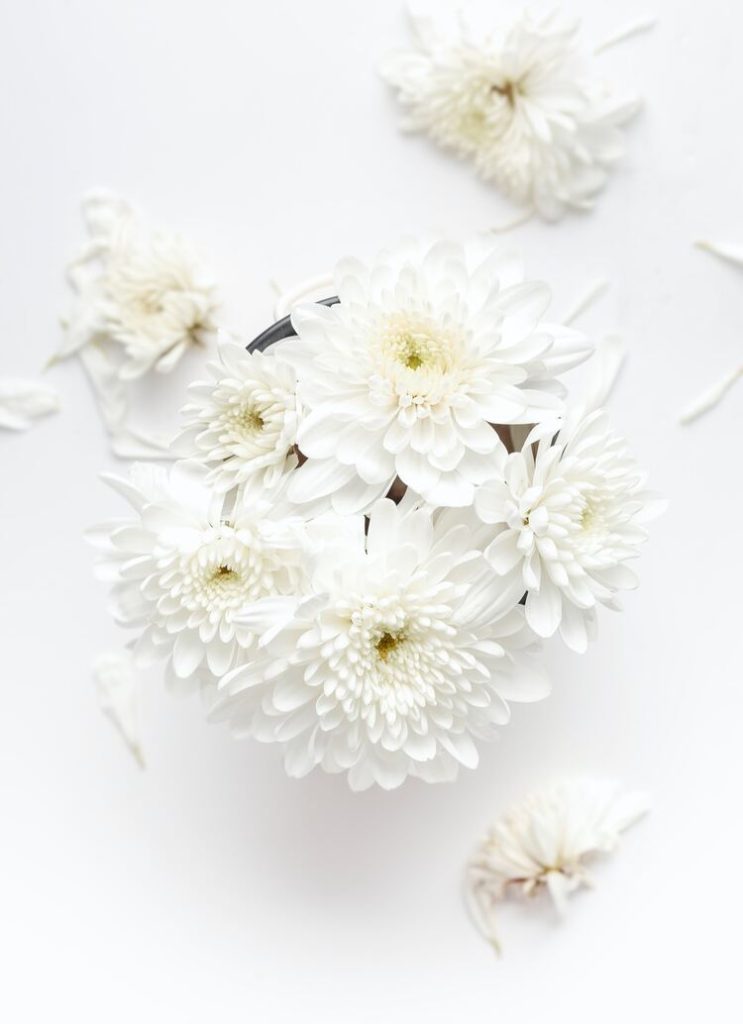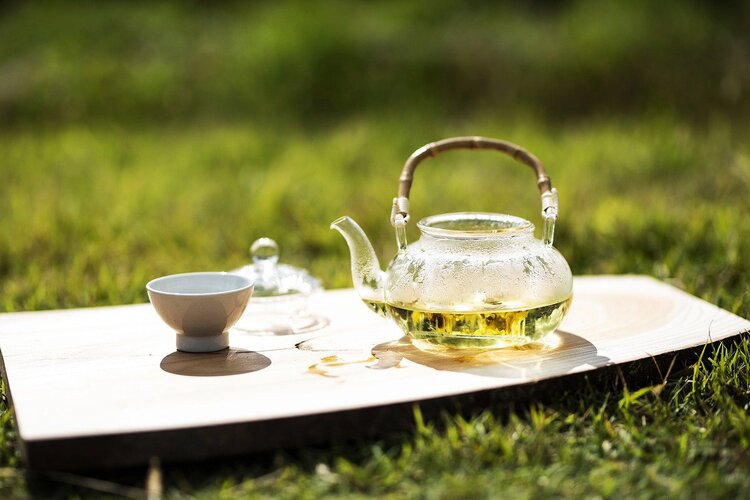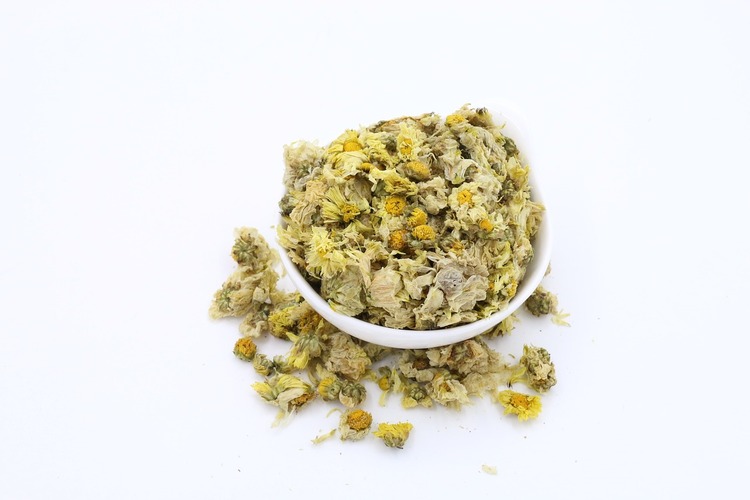What does chrysanthemum tea taste like? Have you tried it? If not, and you do not know what to expect, let me tell you the flavor of chrysanthemum tea can vary depending on how it’s prepared, but in general, it has a light, floral taste that’s both refreshing and soothing.
One of the things that makes chrysanthemum tea different is its aroma. When you take a sip, you’ll notice a subtle, sweet fragrance reminiscent of fresh flowers. The taste is delicate, with a slightly bitter aftertaste that’s not overpowering. Some people describe it as having a honey-like sweetness, while others find it more earthy and herbal.
If you want to learn more, keep reading since this tea is worth considering.
Please note: This article contains affiliate links, meaning I may earn a commission if you make a purchase by clicking a link. Of course, this comes at no extra cost to you and helps me keep offering readers solid information.

What is Chrysanthemum Tea?
Chrysanthemum tea is a type of herbal tea made from dried chrysanthemum flowers. These flowers come from the chrysanthemum plant, which is native to East Asia and is part of the Asteraceae family, along with daisies.
This tea has been used for centuries in Chinese medicine as a natural remedy for various ailments. It is also a popular beverage in Japan and Korea, enjoyed for its delicate floral flavor and attributed health benefits.
Dried chrysanthemum flowers are steeped in hot water for several minutes to make chrysanthemum tea. The tea may have a slightly different flavor profile depending on the variety of chrysanthemums used.
To understand the previous sentence, think about chrysanthemum as a group (genus) of plants within a family (instead of considering it as a single species).
The tea is often enjoyed independently, but it can also be combined with other herbs or ingredients to create more complex blends. Some common additions to chrysanthemum tea include goji berries, honey, and rock sugar.
What Does Chrysanthemum Tea Taste Like?
The exact flavor of chrysanthemum tea can vary depending on the type of chrysanthemum used, the preparation method, and whether it’s blended with other ingredients like tea leaves. Here’s a breakdown of the general flavor profile:
- Floral: The dominant flavor note in chrysanthemum tea is its floral quality. The tea captures the natural essence of the plant’s flowers, imparting a delicate and fragrant floral aroma. This aspect is often what sets chrysanthemum tea apart from other herbal teas.
- Slightly Sweet: The tea carries a mild natural sweetness, which can vary depending on the specific flowers used and their maturity. This sweetness is usually subtle.
- Herbaceous and Earthy: Alongside its floral and sweet elements, the tea may have gentle herbaceous and earthy undertones. These flavors can provide a mild complexity to the overall taste, adding depth to the tea’s profile.
- Clean and Refreshing: Chrysanthemum tea is often lauded for its crisp and clean character. It’s a refreshing beverage, appealing when served cold or with ice on hot days.
- Subtle Bitterness: There might be a hint of bitterness, especially with certain types of chrysanthemum flowers. However, this bitterness is usually mild and not as pronounced as in other herbal teas.
- Balanced: Overall, the tea strikes a pleasant balance between its floral, sweet, and herbal aspects.
You can add honey to the tea if you prefer a sweeter taste. The honey flavor complements the floral flavor of the tea and creates a delicious combination of flavors.
Chrysanthemum tea can also be brewed with ginger. The spicy notes of ginger add a pleasant kick to the floral tea and create a warming sensation. The combination of ginger and chrysanthemum tea is perfect for cold winter days.

How to Brew Chrysanthemum Tea
Brewing chrysanthemum tea is a simple process that can be done in just a few steps. Here’s how to do it:
- Boil water: Start by boiling water in a teapot or kettle. The amount of water you need will depend on how much tea you want to make. A general rule of thumb is to use one tablespoon of chrysanthemum flowers for every cup of water.
- Steep the tea: After boiling the water, turn off the heat and add the chrysanthemum flowers to the teapot. Let the tea steep for 3-5 minutes, depending on how strong you want the flavor to be. You can steep the tea for a few minutes longer if you prefer a stronger taste.
- Strain the tea: After the tea has steeped, use a strainer to remove the chrysanthemum flowers. This will prevent any stray petals or debris from getting into your cup.
- Serve: Pour the tea into a teacup and enjoy! You can add honey or sugar to sweeten the tea if you prefer.
You can also use a glass teapot to brew the tea. This will allow you to see the tea as it steeps, which can be a fun experience.
For cold brew chrysanthemum tea, you can follow the same steps as above, but use cold water instead of hot water. Simply add the chrysanthemum flowers to a pitcher of cold water and let it steep in the refrigerator for several hours. This will create a refreshing tea that is perfect for hot summer days.
It’s important to note that the water temperature and steeping time can affect the taste of the tea. If the water is too hot, it can cause the tea to become bitter. If the steep time is too long, it can also taste bitter. Experiment with different water temperatures and steep times to find the perfect balance for your taste buds.
Health Benefits and Side Effects
Drinking chrysanthemum tea can provide you with several health benefits. Here are some of the health benefits of chrysanthemum tea:
- Antioxidant properties: The tea is rich in antioxidants that can help protect your body from free radical damage.
- Anti-inflammatory properties: Chrysanthemum tea has anti-inflammatory properties that can help reduce inflammation.
- Blood pressure: Drinking this tea can help lower your blood pressure, making it a fantastic choice for people with hypertension.
- Caffeine-free: The tea is naturally caffeine-free, making it a great alternative to coffee or regular tea.
- Digestion: Chrysanthemum tea can aid in digestion and help relieve constipation.
- Immune system: Chrysanthemum tea can help boost your immune system, making it easier for your body to fight infections.
Please note it is important to consume it in moderation and consult a doctor if you have any reservations.

Buying Recommendations
If purchasing chrysanthemum tea, there are some things to take into consideration:
- Quality and Source: Look for reputable brands or suppliers that offer high-quality products. Opt for teas sourced from regions known for producing good chrysanthemum flowers if possible. Chinese and East Asian varieties are commonly regarded as some of the best.
- Whole Flowers: Choose a product that contains whole flowers rather than broken or crushed petals. Whole flowers are a sign of better quality and are likely to impart a more authentic and flavorful experience.
- Organic Options: If you’re concerned about pesticides or additives, choose organic chrysanthemum tea. Organic teas are typically grown without synthetic pesticides or fertilizers.
- No Additives: Check the ingredient list to ensure the chrysanthemum tea is pure and contains no unnecessary additives, flavorings, or artificial colors.
- Packaging: Opt for tea that is packaged in a way that preserves freshness. Look for teas sealed in airtight containers or resealable bags to prevent exposure to air and moisture.
- Reviews and Recommendations: Read reviews from other customers before purchasing. Positive reviews can provide insights into the tea’s taste, quality, and overall experience.
If you are considering buying online, please take into consideration the following recommendations:
FullChea – Top Grade Chinese Chrysanthemum Tea

INCAS 100% USDA Organic Chrysanthemum Tea


Frequently Asked Questions
What are the benefits of drinking chrysanthemum tea?
Chrysanthemum tea has been used in traditional Chinese medicine for centuries to treat various ailments such as inflammation, headaches, and fever. It is also believed to have antioxidant properties that can help protect against cell damage and reduce the risk of chronic diseases such as cancer and heart disease. Additionally, chrysanthemum tea is known for its calming effects and can help alleviate stress and anxiety.
Does chrysanthemum tea have any side effects?
Chrysanthemum tea is generally considered safe for most people when consumed in moderation. However, some people may experience allergic reactions to chrysanthemum flowers, which can cause skin rashes, itching, and difficulty breathing. If you experience these symptoms after drinking chrysanthemum tea, stop consuming it immediately and seek medical attention.
How do you make chrysanthemum tea?
To make chrysanthemum tea, you need dried flowers, hot water, and a tea infuser or strainer. Simply add a handful of dried flowers to a teapot or infuser, pour hot water over them, and steep for 5-10 minutes. Strain the tea and serve hot or cold, sweetened with honey or sugar if desired.
Does chrysanthemum tea contain caffeine?
Chrysanthemum tea is naturally caffeine-free, making it a great alternative to caffeinated beverages such as coffee or tea. This also makes it a good option for people sensitive to caffeine or wanting to avoid it altogether.

I hope you have enjoyed the article!
To you, what does chrysanthemum tea taste like?
More About Floral Teas
What Does Jasmine Tea Taste Like?
What Does Hibiscus Tea Taste Like?
What Does Rose Tea Taste Like?
What Does Rose Milk Tea Taste Like?
What Does Rosehip Tea Taste Like?
What Does Lavender Tea Taste Like?
What Does Lavender Milk Tea Taste Like?